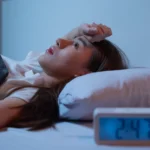Specialized Therapies for Severe Depression
Severe depression, especially treatment-resistant depression, often requires specialized therapies for effective relief. Advanced techniques include Electroconvulsive Therapy (ECT), Repetitive Transcranial Magnetic Stimulation (rTMS), and Vagus Nerve Stimulation (VNS). For those whose depression does not improve despite standard treatments, exploring these options can be crucial.
These specialized therapies target severe depression, aiming for significant improvements where other treatments have failed to treat severe depression. Understanding the available options helps patients make informed decisions about their care and find the most effective treatment for their condition.
Electroconvulsive Therapy (ECT)
Electroconvulsive Therapy (ECT) treats severe depression by inducing controlled seizures through electrical impulses. This procedure has proven effective for severe cases, especially when other treatments have failed. It typically involves sending electrical impulses through the brain to induce a controlled seizure, alleviating severe depression symptoms.
Patients undergoing ECT typically receive a series of treatments that include preparation steps like anesthesia and monitoring. Although ECT may seem daunting, it has provided significant relief for those with severe depression, making it an essential option for treatment-resistant cases.
Repetitive Transcranial Magnetic Stimulation (rTMS)
Repetitive Transcranial Magnetic Stimulation (rTMS) is a non-invasive treatment that alleviates severe depression by stimulating targeted brain areas. The procedure involves placing a magnetic coil on the scalp and delivering short pulses to stimulate nerve cells linked to mood regulation. Success rates for rTMS vary, but some studies indicate significant mood improvements after several sessions.
This treatment is particularly beneficial for those who have not responded well to other therapies. By targeting specific brain areas, rTMS improves depressive symptoms without needing more invasive procedures, offering a promising alternative for severe depression.
Vagus Nerve Stimulation (VNS)
Vagus Nerve Stimulation (VNS) involves surgically implanting a device that delivers electrical impulses to the vagus nerve, aiding in treatment-resistant depression. This therapy has shown positive outcomes in patients with severe symptoms, improving overall emotional well-being. The device sends electrical signals to the vagus nerve, helping manage severe depression symptoms.
VNS involves a surgical procedure to implant the device, followed by regular adjustments and monitoring to ensure effectiveness. For individuals with chronic depression unresponsive to other treatments, VNS offers a viable option to improve mood and overall mental health.
The Role of Mental Health Professionals in Treating Depression
Consulting qualified mental health professionals is vital for effectively addressing depression. Therapists, psychiatrists, psychologists, and other mental health professionals provide crucial support and guidance. They play a critical role in diagnosing the condition, developing treatment plans, and offering psychological counseling to help patients navigate their mental health journey.
The expertise and support of mental health professionals are invaluable in treating depression. They provide a safe space for individuals to explore emotions, develop coping strategies, and work towards recovery. Seeking help from qualified professionals allows individuals to access necessary resources and support to manage depression effectively.
Finding the Right Therapist
Finding the right therapist is crucial for effective depression treatment. Choose a therapist with specialized training and experience in treating depression. Verify that your therapist is licensed and has the appropriate qualifications for your specific concerns. Consulting online directories and your insurance provider can help locate qualified therapists.
Assessing the qualifications and specialties of therapists is key in the process. A therapist experienced in cognitive behavioral therapy, interpersonal therapy, or other relevant approaches can provide targeted support. Finding the right therapist ensures individuals receive the most effective treatment for their condition.
Working with a Multidisciplinary Team
A collaborative approach involving various healthcare providers can enhance depression therapy’s effectiveness. Involving specialists like psychologists, social workers, and nurse practitioners allows for comprehensive care tailored to individual needs. This multidisciplinary approach ensures all aspects of a patient’s mental health are addressed.
Collaborative efforts among healthcare professionals lead to more comprehensive and effective treatment. Working together, these professionals provide a cohesive plan addressing the psychological, emotional, and physical aspects of depression. This approach enhances overall treatment effectiveness and supports long-term recovery.
Duration and Commitment to Therapy
Therapy for depression often requires several weeks to months before noticeable improvements occur. The average duration typically spans between 8 and 20 sessions, depending on individual needs and severity. This section discusses the typical course of therapy and the importance of consistency in attending sessions.
Regular attendance in therapy sessions greatly enhances the likelihood of achieving positive outcomes in managing depression. Consistency helps maintain recovery momentum and reinforces learning, making it crucial for effective treatment.
Typical Course of Therapy
The length of therapy varies based on individual needs, treatment goals, and the severity of depression. The average duration often spans weeks to months, requiring a commitment to attend regular sessions over this period.
The typical course of therapy spans between 8 and 20 sessions, depending on individual progress and symptom severity. This duration allows for significant improvement, providing individuals with the tools to manage their condition.
Importance of Consistency
Regular attendance in therapy sessions is essential for maintaining the momentum of recovery and reinforcing learning. Consistency in attending therapy sessions helps create a deeper client-therapist relationship, which is crucial for effective treatment. This regular interaction allows therapists to monitor progress, address any new issues that arise, and adjust treatment plans as needed.
Studies have shown that regular attendance significantly enhances the chances of positive outcomes in treating depression. It helps individuals stay engaged in the therapeutic process, fostering a sense of accountability and commitment to their mental health journey. By maintaining consistency, patients can maximize the benefits of therapy and achieve lasting improvements in their mental well-being.
Lifestyle Changes to Support Therapy
While therapy is a powerful tool for treating depression, incorporating lifestyle changes can further support the healing process. Psychological therapy can effectively alter thought patterns and enhance coping abilities, aiding individuals in managing stress and challenges. This section will explore various lifestyle changes that can complement therapy and improve depression symptoms.
Engaging in structured activities, improving sleep patterns, managing major life stressors, and setting realistic goals are all crucial components of a comprehensive treatment plan for major depressive disorder. These changes can help individuals break the cycle of avoidance associated with depression and foster a positive mindset.
By integrating these strategies into their daily lives, individuals can enhance the effectiveness of their therapy sessions and achieve better mental health outcomes.
Improving Sleep Patterns
Maintaining a consistent sleep schedule is crucial for improving sleep quality and supporting mental well-being. Studies suggest that avoiding caffeine and large meals before bedtime can help mitigate insomnia and enhance sleep. Additionally, using relaxation techniques, such as mindfulness and deep breathing, can alleviate anxiety that interferes with sleep.
Improving sleep patterns can significantly impact mood and overall mental health. Trouble sleeping is a common symptom of depression, and addressing sleep issues can lead to better emotional regulation and reduced depressive symptoms. By prioritizing good sleep habits, individuals can support their therapy and improve their overall quality of life.
Managing Major Life Stressors
Managing major life stressors is essential for maintaining mental health during challenging times. Identifying stressors and developing coping strategies can significantly reduce their impact on mental health. Developing problem-solving skills can help individuals navigate life challenges that affect their mental well-being.
Maintaining supportive relationships with family members is vital for coping with stress and reducing its negative impact on mental health. By addressing and managing major life stressors, individuals can create a more stable and supportive environment that fosters mental health and enhances the effectiveness of their therapy sessions.
Building Realistic Goals
Setting achievable goals fosters a sense of accomplishment and helps maintain motivation during therapy. By breaking down larger objectives into smaller, manageable tasks, individuals can make steady progress and build confidence in their abilities. This approach reinforces a positive mindset and supports long-term recovery.
Achievable goals can foster a sense of accomplishment, which is beneficial for progress in therapy. By setting realistic milestones, individuals can stay motivated and track their progress, making the therapeutic process more rewarding and effective.
Therapy offers a multitude of benefits for individuals struggling with depression, from addressing underlying issues to developing effective coping strategies. Whether through Cognitive Behavioral Therapy, Interpersonal Therapy, or specialized treatments like ECT, rTMS, and VNS, there are numerous options available to meet the unique needs of each individual. Combining therapy with medication can further enhance treatment outcomes, providing a comprehensive approach to managing depression. By incorporating lifestyle changes and working with qualified mental health professionals, individuals can achieve lasting improvements in their mental well-being. Remember, seeking help is the first step towards recovery, and with the right support and commitment, it is possible to overcome depression and lead a fulfilling life.
Frequently Asked Questions
How effective is therapy in treating depression?
Therapy is highly effective in treating depression, offering significant symptom relief and equipping individuals with essential coping strategies. Engaging in therapy can lead to lasting improvements in mental health.
What is the role of Cognitive Behavioral Therapy (CBT) in treating depression?
Cognitive Behavioral Therapy (CBT) plays a crucial role in treating depression by helping individuals identify and challenge negative thoughts and behaviors, resulting in significant symptom improvement. Its structured approach empowers clients to develop healthier thinking patterns and coping strategies.
Can antidepressant medications alone effectively treat severe depression?
Antidepressant medications alone may provide some stabilization for severe depression, but a combination with therapy is typically more effective. This dual approach addresses both the symptoms and underlying issues.
What are some specialized therapies for treatment-resistant depression?
Electroconvulsive Therapy (ECT), Repetitive Transcranial Magnetic Stimulation (rTMS), and Vagus Nerve Stimulation (VNS) are effective specialized therapies for treatment-resistant depression. These options can provide relief when traditional treatments have failed.
How important is consistency in attending therapy sessions?
Consistency in attending therapy sessions is essential for reinforcing learning and achieving effective outcomes in mental health management. Regular attendance helps maintain momentum and enhances the overall therapeutic experience.







